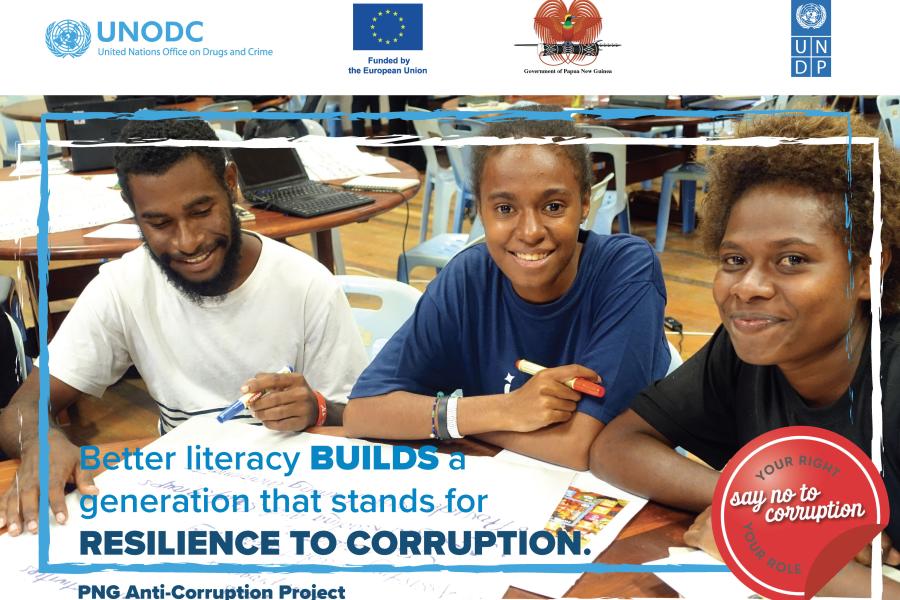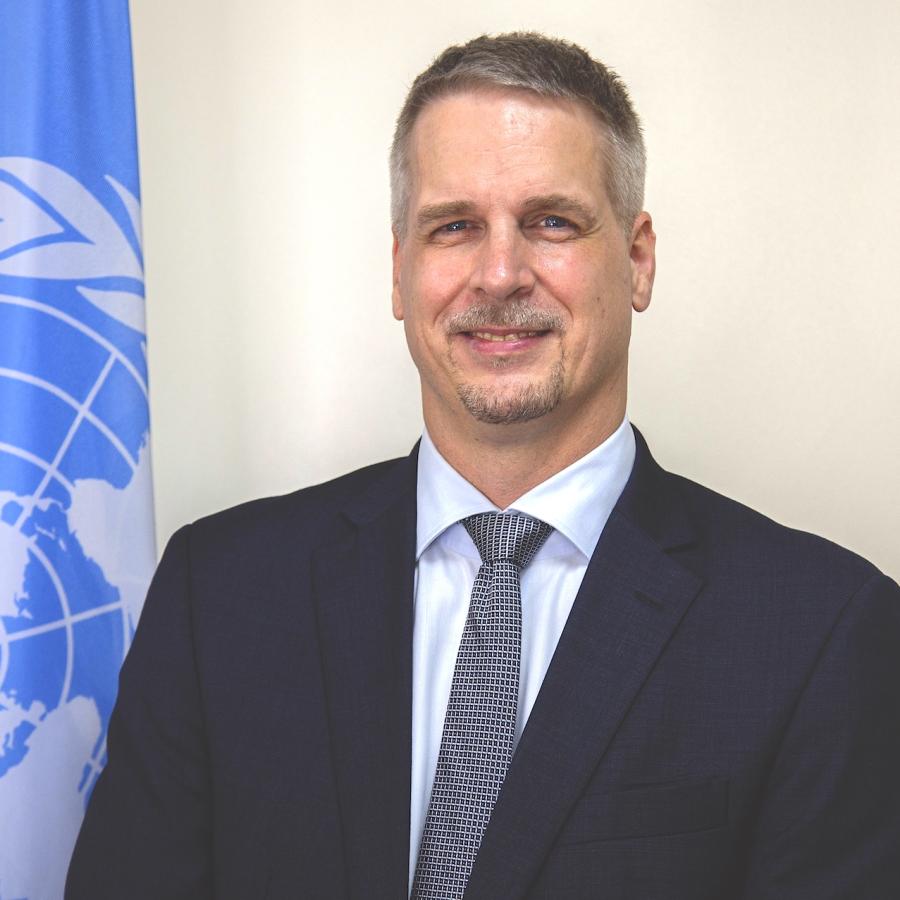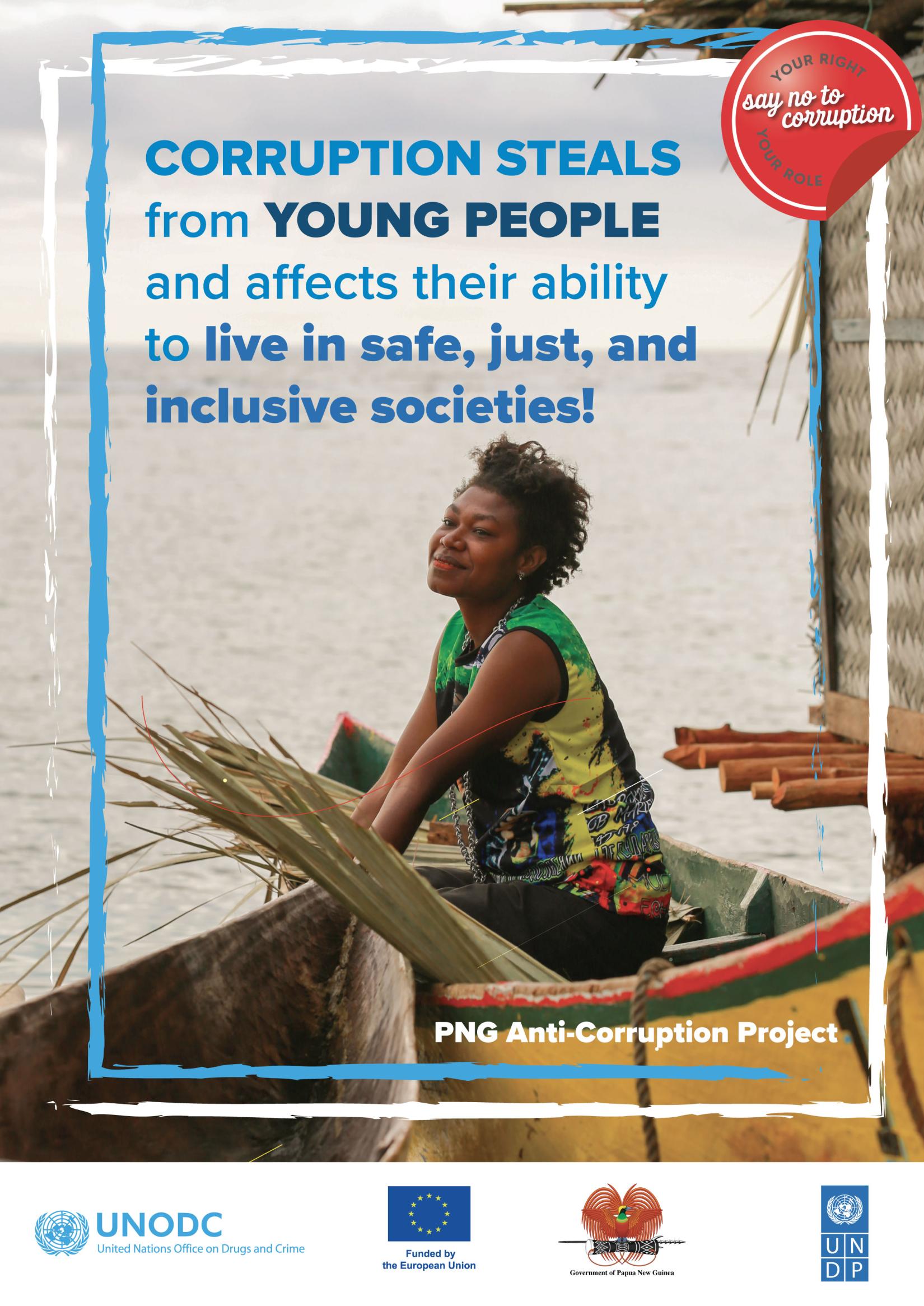Ending corruption is key to increasing prosperity.
09 December 2021
This International Anti-Corruption Day 2021, Dirk Wagener, UN Resident Coordinator a.i. in Papua New Guinea states that "ending corruption is key to increasing prosperity".

On 9 December, Papua New Guinea will join global celebrations of the International Anti-Corruption Day, marking the adoption of the United Nations Convention Against Corruption (UNCAC) in 2003. Papua New Guinea was one of the first countries in Asia and the Pacific to ratify the Convention, in May 2007.
International Anti-Corruption Day raises awareness on corruption and the role of the UNCAC in preventing it. Corruption is one of the key obstacles to achieving sustainable development and the Sustainable Development Goals. It affects all of society, diverts funds from much needed basic services, leads to inequality and undermines trust in public institutions.
Effective anti-corruption mechanisms and controls are crucial to protect public funds and access to basic services. The Public Accounts Committee of the National Parliament has undertaken several inquiries into the misuse of public funds and has identified corruption as a major impediment, highlighting the importance and value of independent accountability mechanisms in addressing corruption.

It is very encouraging that Papua New Guinea has made visible progress in establishing a number of key anti-corruption instruments over the past few years.
Practice from many countries all over the world has shown that independent anti-corruption institutions play a key role in an effective fight against corruption. The adoption of the Organic Law on the Independent Commission Against Corruption (ICAC) in November 2020 was a milestone that enabled establishment of the ICAC to become one of the key anti-corruption institutions in Papua New Guinea. However, sufficient funding, resources, and independence need to be ensured for the ICAC to be able to fulfill its important preventive and investigative role. Government, civil society and development partners are now rallying to ensure its effective implementation and to provide institutional and funding support to the ICAC.
Efficient whistleblower protection is one of the key mechanisms that can lead to greater accountability and transparency in both public and private sectors. In 2020, the PNG Parliament enacted the Whistleblower Act, but is yet to be fully implemented. Guidelines and procedures need to be developed to enable safe reporting of alleged corruption. It is also important to enhance awareness programmes for public servants, and the citizens of Papua New Guinea to understand how they can report corruption and how they can be protected in case of retaliation.
As in many other countries, the Government of Papua New Guinea has recognized the importance of formal systems and procedures for asset and conflict of interest declaration for greater accountability and transparency in the public sector. Asset disclosure and conflict of interest requirements now are enshrined in Papua New Guinea’s Leadership Code, and other public service rules. Guidelines for monitoring of the procedures to ensure all asset declarations and conflict of interest regimes become fully operational need further strengthening.
Implementing effective access to Government information also leads to greater accountability and transparency of the public sector. Article 51 of Papua New Guinea’s Constitution does guarantee the right to information. To operationalize this commitment and right, the Government has developed an ambitious National Right to Information Policy 2020-2030 that commits all Government to disclose more information to the public. Eventually, this policy should lead to the development of a Right to Information Law. In the meantime, regional and international exchanges, trainings and public consultations among decision-makers, practitioners, experts, and civil society can prepare the ground for the adoption of the effective Right to Information system.
The key message of the Anti-Corruption Day 2021 is that every person has the right and responsibility to tackle corruption. The Government is responsible for institutions, policies and systems that enable people to safely speak up and say no to corruption.
Together with Government, civil society, the private sector, development partners, media, and youth - all citizens can contribute to combat corruption in Papua New Guinea. By doing so, Papua New Guinea can harness and steward its abundant natural and human resources for the benefit of all people across the country and ensure that development is inclusive, benefits all and does not destroy or unsustainably exploit the natural resources it depends on.
On this International Anti-Corruption Day, the United Nations vows to continue in collaboration with the people of Papua New Guinea to tackle corruption, and support their right to live healthy, prosperous, and empowered lives.
Your right, your role: Say no to corruption. #NoToCorruption | #IACD2021





